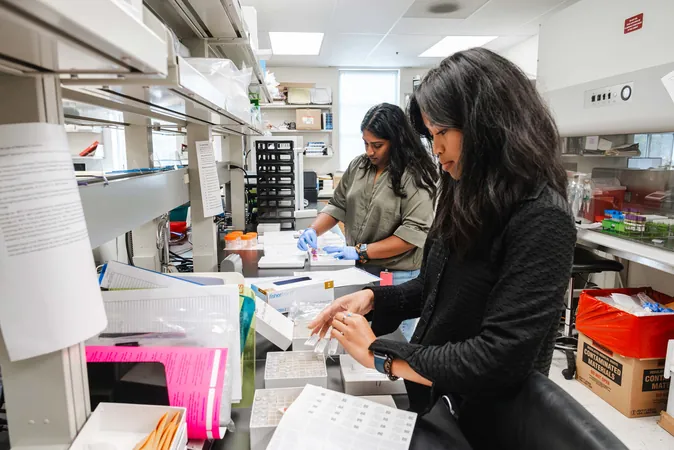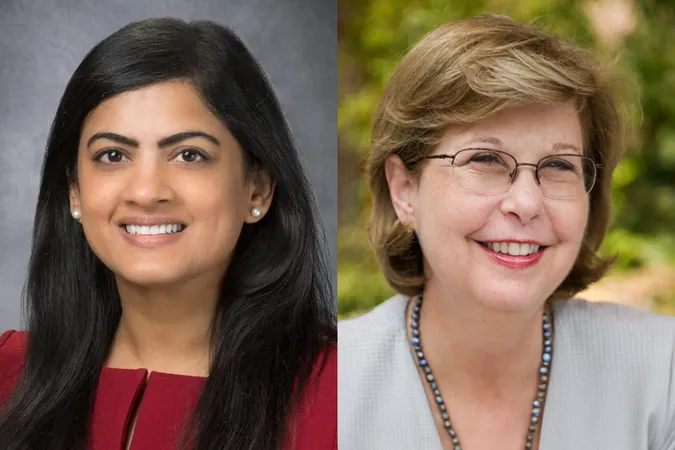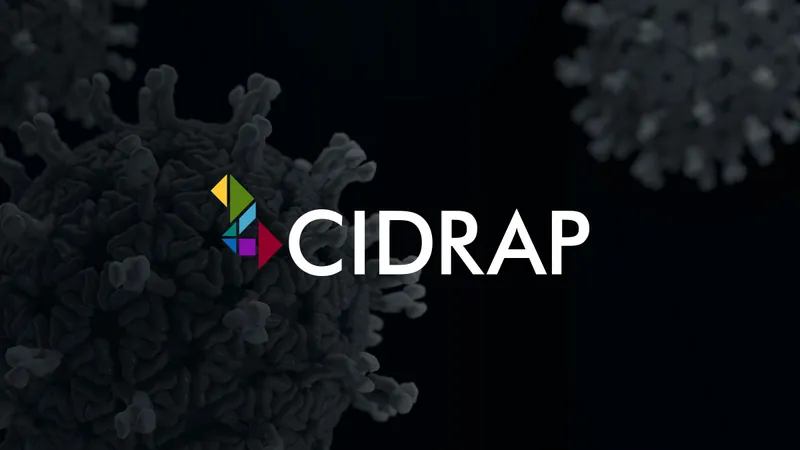
Groundbreaking Research at UVA Unveils Secrets About Colorectal Cancer
2024-09-27
Author: Jia
Introduction
Researchers at the University of Virginia (UVA) are making significant strides in understanding colorectal cancer by constructing a comprehensive biobank from samples collected over 600 patients at UVA Health. Their goal? To unpack the pivotal role of colon polyps—tiny growths in the colon that can lead to cancer.
"Colon polyps are the initial step toward developing cancer," explains lab specialist Samyukta Venkatesh. "Colonoscopies are essential for detecting these polyps in both the colon and rectum."
Research Goals
The ambitious team, under the management of Stephen Eaton, plans to expand the sample collection to thousands, leveraging the unique opportunity to gather diverse data from a large patient population. "We want to take full advantage of this exceptional access to information," Eaton stated.
The Lab Work
Lab work is no easy feat; it often requires researchers to dedicate six to seven hours daily, focusing intently on their samples. Although progress can be slow, Eaton emphasizes the importance of meticulous research, highlighting that "significant time and effort are crucial for effective results."
Diet and Cancer Connection
Over the past year, UVA researchers have been particularly focused on the connection between high-fructose corn syrup in diets and increased rates of colorectal cancer. Their collaborative efforts with the Department of Public Health Sciences are particularly aimed at studying the impact of sugary beverages on health, with a specific lens on rural Appalachia. Given the alarming rates of obesity and related health issues in these regions, this research could reveal vital insights into cancer risks associated with dietary habits.
Future Research Directions
Looking ahead, the team is also set to explore waist-to-hip ratios as another indicator of cancer risk. Traditionally, weight and obesity have been viewed as the primary determinants, but Venkatesh points out that the reality could be much more intricate.
Biobank Participation
To establish a well-rounded biobank, lab specialists—including Alexa Ramirez and Venkatesh—are actively seeking to enroll patients visiting the UVA Endoscopy Clinic. They gather detailed information using questionnaires that delve into medical histories and lifestyle choices. Patients also have the option to voluntarily contribute various samples—stool, hair, toenails, blood, and more. While participation is not mandatory, Venkatesh notes that most patients willingly provide a range of samples.
Types of Samples
The different types of samples collected serve distinct purposes: for example, a cheek swab sheds light on an individual's oral microbiome, while cortisol levels can be assessed through hair samples, offering insights into stress and its potential impacts on health.
Inclusivity in Research
Moreover, the research team is committed to including underrepresented populations, including ethnic minorities, individuals under 50, and those over 70, to ensure that the biobank reflects the full spectrum of American diversity. "Historical research has often focused on, and been conducted by, white men," Venkatesh points out, stressing the importance of inclusivity for accurate representation in medical research.
Future Outlook
With so much groundwork already laid, Eaton expresses enthusiasm for future developments in the field. "We may learn progressively, yet every discovery excites us, and with today's advanced technology compared to a decade ago, we anticipate more rapid progress," he emphasizes.
Ramirez shares this excitement and finds motivation in her colleagues. "It's inspiring to collaborate with individuals who are passionate about their patients and committed to meaningful work," she adds.
Conclusion
As UVA researchers delve deeper into the complexities of colorectal cancer, their breakthrough studies could potentially transform early detection and preventive strategies, ultimately saving countless lives. Stay tuned, as the next chapter in cancer research unfolds at UVA.




 Brasil (PT)
Brasil (PT)
 Canada (EN)
Canada (EN)
 Chile (ES)
Chile (ES)
 España (ES)
España (ES)
 France (FR)
France (FR)
 Hong Kong (EN)
Hong Kong (EN)
 Italia (IT)
Italia (IT)
 日本 (JA)
日本 (JA)
 Magyarország (HU)
Magyarország (HU)
 Norge (NO)
Norge (NO)
 Polska (PL)
Polska (PL)
 Schweiz (DE)
Schweiz (DE)
 Singapore (EN)
Singapore (EN)
 Sverige (SV)
Sverige (SV)
 Suomi (FI)
Suomi (FI)
 Türkiye (TR)
Türkiye (TR)